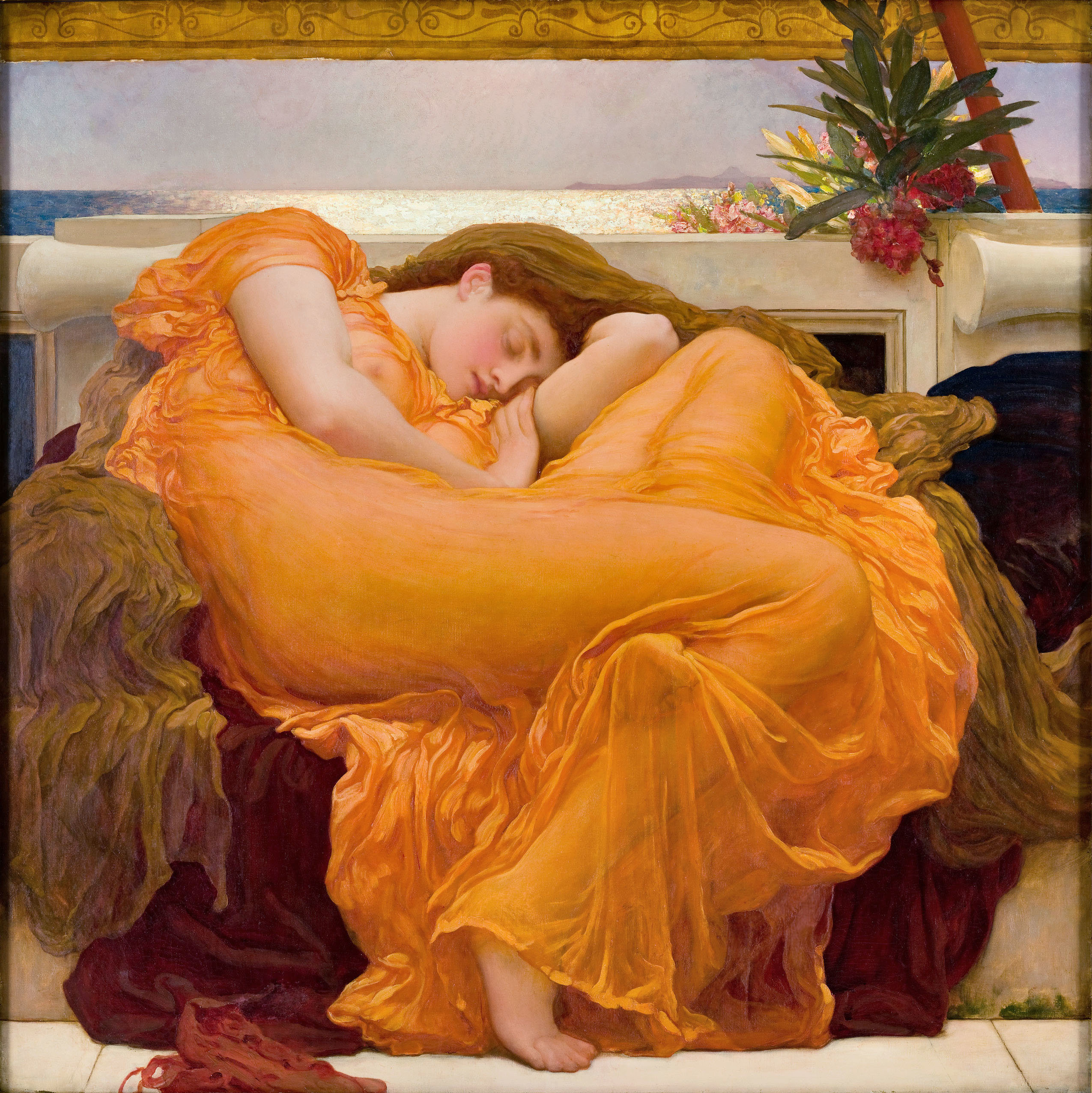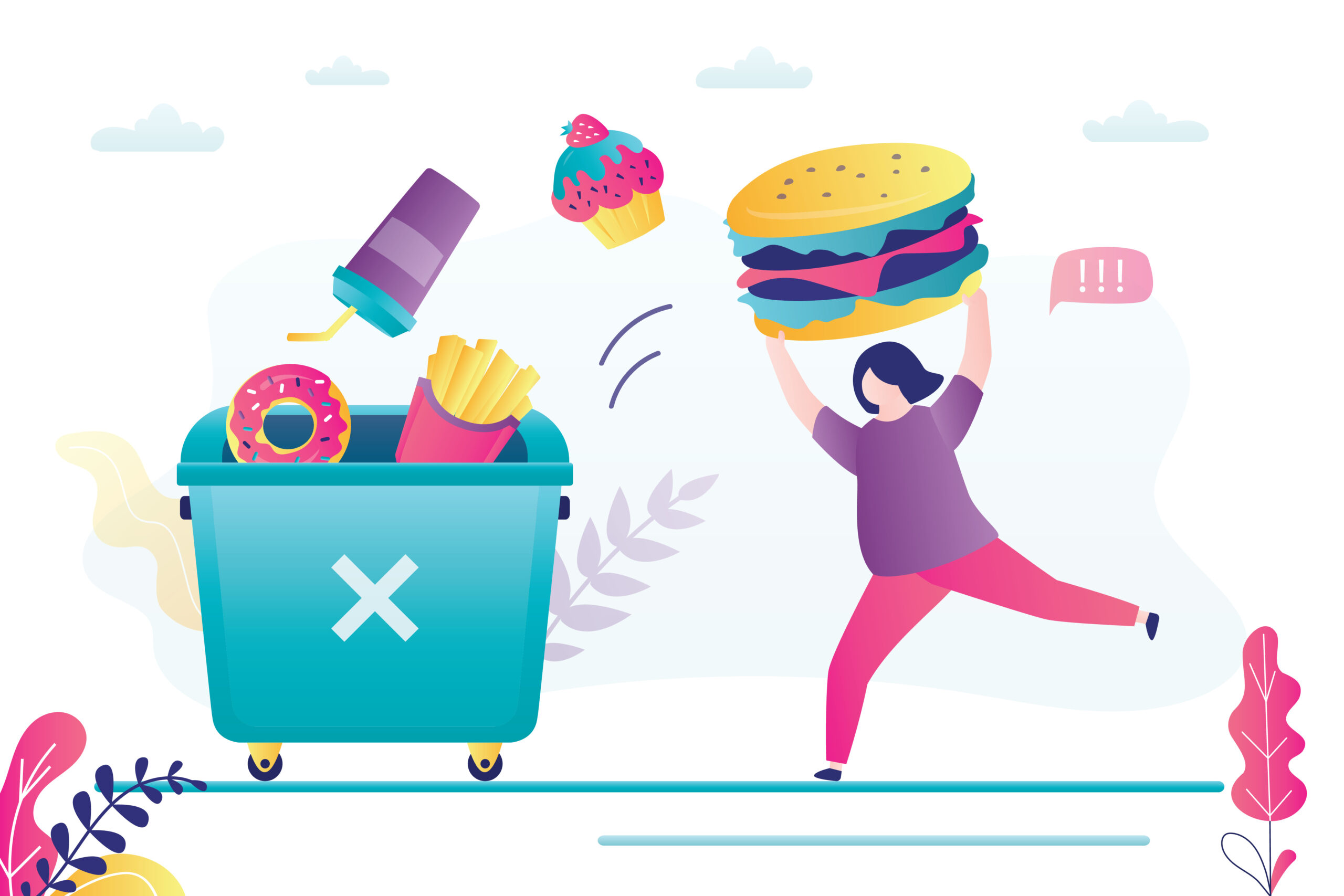Restore, rebuild, repair – why getting shut-eye is as important as exercise and good nutrition.
Calm, restful and dreamy – Sir Frederic Leighton’s iconic oil painting ‘Flaming June’ (1895) sums up beauty sleep at its best.
For centuries sleep has been the study of artists from Henri Rousseau to Picasso, fascinated by the serenity as well as the mystery of sleep – from slumber to sleep disorders. It was even the subject of a performance piece, ‘The Maybe’ at the Museum of Modern Art (MOMA) in New York in March 2016, where actress Tilda Swinton slept on a bed in a glass box for a day as visitors to the gallery circled around her.
Sleep is something we take for granted, until we have trouble sleeping, that is.
And when we worry about not sleeping that can create stress for those already stressed about not getting enough shut-eye. The good news is that there are lots of things we can do to improve the quality of our sleep and a good place to start is understanding why sleep is essential, as well as why you might be having trouble sleeping.
The why
“Sleep is the time when your body goes into its deepest rebuilding state,” says Ben Warren, founder of wellness company BePure. “If we are not getting enough sleep we can tip our body into a catabolic state where it’s breaking itself down faster than it’s able to repair. There has been a lot of research showing the negative effects of sleep deprivation from decreased concentration and physical performance all the way through to mental health issues at the extreme deprivation end.”
Lack of sleep is linked with diabetes, a higher rate of disease, obesity, fatigue, irritability, anxiety and contributes to depression. It can also affect cholesterol levels, which play a significant role in heart disease. Sleep is therefore good for avoiding all of the above, as well as repairing muscle, improving stamina, maintaining a healthy weight, emotional stability, great skin (hence the term ‘beauty sleep’.
Sleeping well also improves brain function and creativity, because when you sleep you strengthen memories and practise skills learned while you were awake. Researchers at Harvard University and Boston College found that people seem to strengthen the emotional components of a memory during sleep, which may help spur the creative process.
Our brain also cleans itself out when we sleep and creates space for being able to take in and synthesise new information. In an article for fastcompany.com, Judah Pollack describes it as the brain’s natural gardening system. Our brain cells shrink by up to 60 per cent when we sleep to create space for our ‘glial gardeners’ to come in and take away the waste and prune the synapses, which helps the garden of our brain to flower.
Sleep and weight loss
Sleep is the single most important thing you can do for your health. It is also as important as exercise when it comes to keeping trim.
In fact, Sarah Sinclair of RuNtrition prescribes sleep as part of The Refinery Programme, which she co-created for Auckland running clinic Get Running. The programme takes a holistic approach to getting healthy, taking into account diet, water consumption, exercise and sleep. Participants of the programme are encouraged to get seven to eight hours sleep daily. They also need to note it down in their weekly journal.
“If you are thinking about trying to lose weight, you also need to plan on getting enough sleep,” says Sinclair. “Studies have shown that people who are better rested lose more fat – in fact it’s 56 per cent of their weight loss – compared to those who were sleep deprived, who lost more muscle mass.”
We all have an autonomic nervous system, which controls many of our unconscious bodily functions, from breathing, digestion and stress responses, explains Warren.
The autonomic nervous system has two branches: the sympathetic (stressed) and parasympathetic (relaxed). Ideally, we want these two branches balanced. If we get inadequate sleep or try to do too much we unbalance the scales towards the sympathetic or stressed side. This means our body goes into a catabolic state and will start breaking down muscle mass to survive. Sleep (with meditation) is one of the deepest parasympathetic states your body can be in and so adequate sleep is one of the keys to balancing a stressful lifestyle.
“Essentially, if you are trying to do too much you will stress your body and as a result your body will start burning muscle mass for energy, which means as you start losing your muscle mass you lose your metabolism, have less energy and actually store more fat,” Warren says.
When to head to bed
According to a recent study published in journal Science Advances on which countries get the most sleep, New Zealand scored highly as a well-rested nation, getting an average of slightly more than eight hours of sleep a day. Yet, despite those statistics, a study by insurance company Sovereign shows that one in three New Zealanders are sleep deprived and that 35 per cent either do not get enough sleep or experience a poor standard of sleep on a nightly basis. It also showed that 35- to 49-year-olds suffer most from sleep deprivation, with 42 per cent struggling to get a quality snooze. And that women suffer from poorer quality and quantity of sleep than men (38 per cent versus 32 per cent).
“Our body has an internal clock that’s called a circadian rhythm, and it’s largely controlled by the sun and our exposure to light,” says Warren. “The research shows that to maximise our melatonin levels we really need to be in bed heading towards sleep about five hours after the sun goes down. As a general rule I like my clients to be in bed before 10pm.”
Many adults operate best on at least seven-and-a-half hours sleep, but everyone works differently.
“I think the ideal amount of sleep is achieved when you wake up naturally, feeling refreshed and ideally waking up like a six-year-old on Christmas morning – excited to face the day,” says Warren.
The stress factor
An overstimulated sympathetic nervous system is one of the major reasons people have trouble sleeping. This could be caused by intense exercise in the evening or high cortisol levels (our main daytime hormone) from increased stress.
“This overstimulated nervous system then reduces the secretion of our main night-time hormone, melatonin, which means we are not tired,” he explains. “Other reasons for not enough melatonin can be related to nutrient deficiencies such as zinc and vitamin C, as our body requires these nutrients in the production of melatonin.”
Stress makes it hard to lose weight and is a major contributor to weight gain. It’s one reason some people just can’t seem to lose weight, no matter how well they eat or how much they exercise, explains Sinclair.
When we are under stress, the adrenal glands release cortisol and cortisol should only be released when we are under attack for a short-term “fight or flight” situation. However, with chronic stress, the adrenal glands are releasing cortisol constantly, which starts to play havoc with your body.
It raises your blood sugar levels, makes it harder for glucose to get into your cells, makes you hungry and crave sugar, reduces your ability to burn fat, causes hormonal imbalances, makes your cells less sensitive to insulin, increases the fat around your tummy and in your liver, increases the rate at which you store fat and raises the level of fatty acids and triglycerides in the blood.
“Several studies show that sleep deprivation elevates cortisol levels, and that restricting your sleep to just five hours a night for one week significantly reduces insulin sensitivity,” Sinclair says. “Other studies show reducing the sleep for healthy adults increased their appetites and a loss of three hours a night equates to a weight gain of four to five per cent; good reasons to be aiming for that eight hours a night before you even worry about your food diaries.”
Sleep and metabolism are controlled by the same sectors of the brain. When you are sleepy, certain hormones go up in your blood, and those same hormones drive the appetite, says Sinclair. “When it comes to our health, stress and sleep are nearly one and the same – both can affect cardiovascular health. Sleep can definitely reduce levels of stress, and with that people can have better control of their blood pressure.”
Improving sleep
If you wake in the night around 3am it’s probably your liver in overdrive. The liver works harder at this time, detoxifying the blood, and if it runs out of energy it will cause an increase in cortisol (our daytime/energy/stress hormone), which then wakes us up. The answer to this is to improve our liver function, says Warren.
He also recommends eating foods that are high in amino acid tryptophan because it is the precursor to melatonin, our sleepytime hormone. Oysters are the best source of zinc to help the conversion of tryptophan, and citrus fruits for vitamin C. Magnesium can also be very beneficial to helping people sleep as it lowers cortisol and also helps your body build the relating neurotransmitter GABA. Magnesium is also very useful for helping your muscles to relax, which is especially helpful after a stressful day or intense exercise. It’s not a ‘one size fits all’ approach, though, with magnesium, warns Warren, as it is also used in energy production and for some people taking magnesium can increase energy production and keep people awake. “I recommend trying 200mg of chelated magnesium at dinner to see how your individual response is to this essential mineral,” he says.
Many herbs can also promote a more restful sleep. In April 2012, Artemis created a Deep Sleep Tea because she was constantly being asked for a sleep remedy, in particular for chronic sleep problems.
Their Deep Sleep blend combines hops (humulus lupulus), which have calming properties and have been shown to improve sleep, especially when used together with valerian. Valerian (valeriana officinalis) is non-addictive and helps relax the central nervous system, says Artemis.
It also contains passionflower, which has been scientifically researched to help recover from an overworked nervous system and is best taken daily to improve stress resilience; woodruff which is traditionally used to relieve tension disorders; and liquorice (glycyrrhiza glabra) to help mitigate adrenal exhaustion.
“The most outstanding feature of liquorice is its ability to improve resistance to physical, mental and emotional stress. It contains glycyrrhizin, which has a similar structure to the hormones produced by the adrenal glands, including cortisol,” says Artemis.
The hustle and bustle of modern life was also one of the motivating factors for Native Rituals founders Tamati and Rebecca Norman to create their relaxing bodycare range. One of the hero products is Coconut Milk Bath – a blend of coconut milk, halloysite clay, magnesium sulphate and sodium bicarbonate.
“We are encouraging people to find that place of rest in their day,” Norman says. “If you are highly stressed you are burning through your magnesium, and we also become magnesium deficient through sugar, caffeine and alcohol. A 20-minute soak in a hot bath relaxes the muscle tissue and slows the brain down. It opens the pores, allowing the magnesium to be absorbed transdermally. We call it the Polynesian Cleopatra bath because you feel like royalty when you are sitting there and the bath is all milky.” And it makes your skin feel super soft and silky too.
Tips for a good night’s sleep
· Make your room as dark as possible. Bright light prevents the brain from producing melatonin – the hormone that makes you go to sleep.
· Minimise noise in your room.
· Stabilise blood sugar levels by eating a balanced meal of protein, fats and carbohydrates and avoiding simple carbohydrates before bed.
· Minimise sources of electromagnetic radiation by moving your clock radio to the other side of the room and switch plugs off that are close to the bed.
· Balance your autonomic nervous system by meditating for 10 minutes before bed, or simply lie with your legs up against the wall and breathe diaphragmatically.
· Caffeine stimulates the stress hormone cortisol so avoid coffee, and even be careful with black teas and chocolate later in the day.
· Avoid too much alcohol. While it does make you doze off more quickly, it also reduces your sleep quality and puts more pressure on your liver.
· Resist looking at your phone, iPad and laptop two hours before you go to bed. Backlit screens stimulate your mind, making it more difficult to go to sleep.





